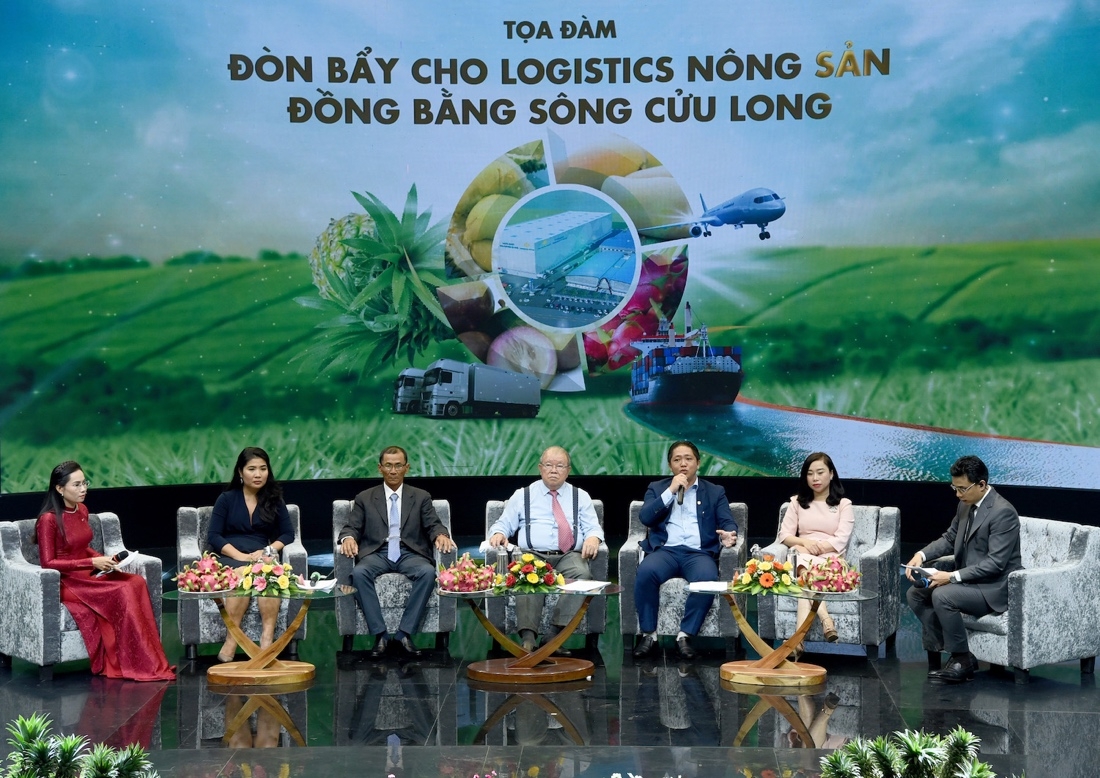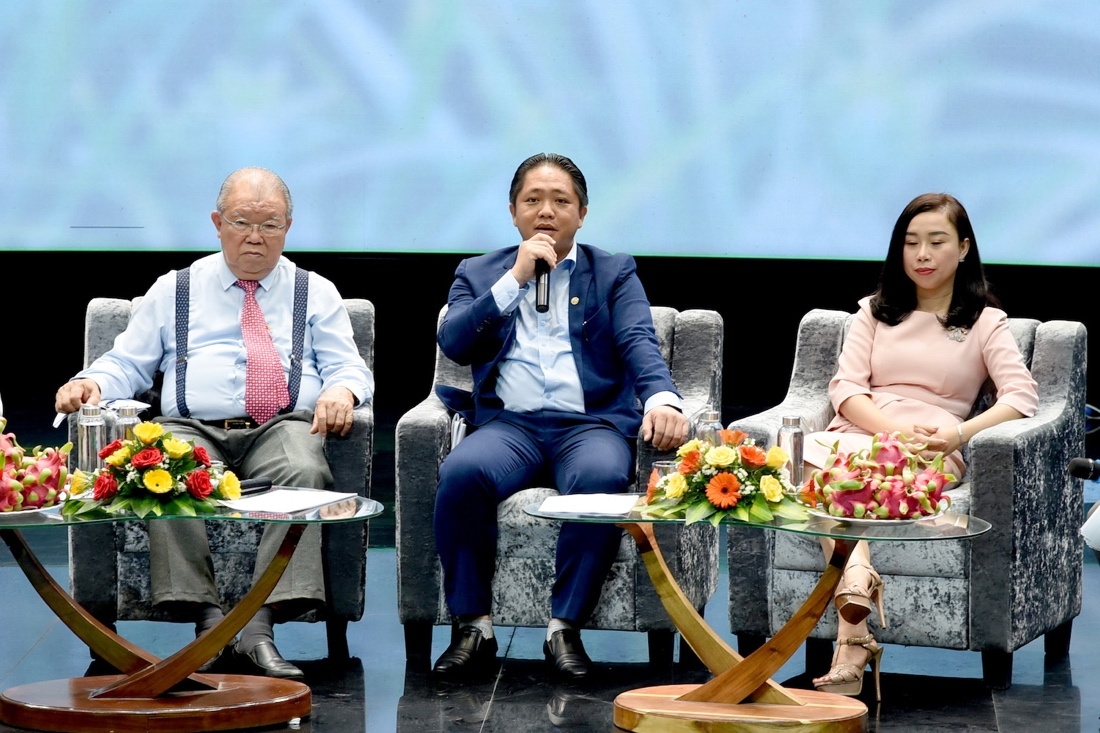Removing logistics barriers to unlock potential of Mekong Detla's agricultural exports
 |
| The workshop drew valuable feedback and ideas to remove the logistics challenges facing the Mekong Delta's agricultural sector |
At the “Logistics leverage for the Mekong Delta agri-products” workshop held last week in the Mekong Delta province of Hau Giang, local officials, businesses and experts have shared their thoughts about removing logistics barriers to improve the Mekong Delta’s agri-product exports.
The Mekong Delta is a key economic region, accounting for around 90 per cent of the country’s rice exports, 65 per cent of the country’s seafood production as well as 70 per cent of the country’s fruit exports. The Mekong Delta exports tens of millions of tonnes of goods each year. However, there is a lack of seaports in the region, especially deep-water ports that can handle export containers. This, coupled with overloaded ports in Ho Chi Minh City, leads to increased service fees, storage fees, and waiting times.
According to Le Tien Chau, Secretary of the Hau Giang Provincial Party Committee, the Mekong Delta lacks key logistics centers. Therefore, goods are transported through various locations before reaching Ho Chi Minh City for export. Meanwhile, the transport system in the Mekong Delta has yet to fully develop to meet the demand.
“These shortcomings – including logistics costs – constrained agri-products in the Mekong Delta. Specifically, the Mekong Delta has the highest logistics costs accounting for 30 per cent of product costs. The unreasonably high costs make the Mekong Delta’s agri-products less competitive than those of Thailand and China,” he said.
Nguyen Thanh Binh, chairman of the Vietnam Fruit and Vegetables Association said that logistics rely greatly on infrastructure. However, there is still a lack of logistics facilities in raw material producing areas like the Mekong Delta, making it difficult for farmers to process crop in a timely manner. Due to high logistics costs, businesses cannot afford to invest in factories and warehouses to raise the competitiveness of local agri-products.
 |
| Pham Tien Hoai, general director of Hanh Nguyen Logistics introducing the all-in-one logistics centre in Hau Giang |
To address the challenge, an all-in-one logistics centre for all agricultural export procedures has been put into operation in Hau Giang province, which will help optimise logistics costs and improve the competitiveness of regional agriculture in the international markets.
Pham Tien Hoai, general director of Hanh Nguyen Logistics, the investor of the project said that the centre will address the challenges of farmers, producers (traders and businesses), and exporters. The centre is a gathering place for hundreds of traders buying agri-products from farmers. In particular, it is possible to store agri-products after harvest for up to 90 days instead of just the usual seven days.
“Thanks to the centre, farmers will no longer face the price pressure while freeing them up to find markets for their products. Farmers can also receive fair profits for their efforts and investments without facing the situation of agri-product rescue,” he said.
In addition, the center boasts a storage warehouse with a capacity of 150,000 tonnes as well as a workshop for sorting, packaging, and irradiation. Therefore, agricultural processing and export businesses do not need to invest tens of billions of dong to access modern processing and packaging facilities for their agri-products. The centre also features hundreds of booths for product demonstration so that businesses can do business with foreign importers. It means that foreign importers do not need to travel across the Mekong Delta to seek agri-products to import. They just need to visit the centre to find the best products.
Le Tien Chau, Secretary of Hau Giang Party Committee said that the local authorities highly appreciate the model and supported the firm in gaining access to bank capital and land fund. To support logistics development in the coming time, Hau Giang will invest VND18 trillion ($781 million) to develop transport infrastructure to improve regional connectivity. Hopefully, Vietnam's agri-products will be able to compete with other countries' agri-products.
What the stars mean:
★ Poor ★ ★ Promising ★★★ Good ★★★★ Very good ★★★★★ Exceptional
Related Contents
Latest News
More News
- EU and Vietnam elevate relations to a comprehensive strategic partnership (January 29, 2026 | 15:22)
- Vietnam to lead trade growth in ASEAN (January 29, 2026 | 15:08)
- Japanese business outlook in Vietnam turns more optimistic (January 28, 2026 | 09:54)
- Foreign leaders extend congratulations to Party General Secretary To Lam (January 25, 2026 | 10:01)
- 14th National Party Congress wraps up with success (January 25, 2026 | 09:49)
- Congratulations from VFF Central Committee's int’l partners to 14th National Party Congress (January 25, 2026 | 09:46)
- 14th Party Central Committee unanimously elects To Lam as General Secretary (January 23, 2026 | 16:22)
- Worldwide congratulations underscore confidence in Vietnam’s 14th Party Congress (January 23, 2026 | 09:02)
- Political parties, organisations, int’l friends send congratulations to 14th National Party Congress (January 22, 2026 | 09:33)
- Press release on second working day of 14th National Party Congress (January 22, 2026 | 09:19)

 Tag:
Tag:




















 Mobile Version
Mobile Version